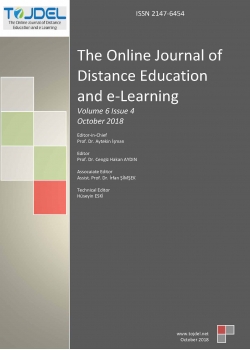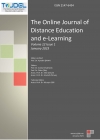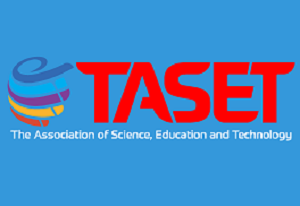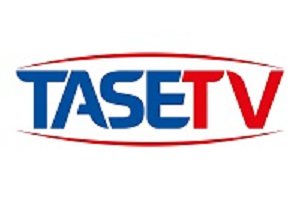TOJDEL - Volume 6 - Issue 4 - October 2018
 A STUDY ON THE FACTORS AFFECT E-LEARNING OUTCOMES OF THE PILOTS IN A SELECTED AIRLINE IN THAILAND
A STUDY ON THE FACTORS AFFECT E-LEARNING OUTCOMES OF THE PILOTS IN A SELECTED AIRLINE IN THAILAND Dinesh Elango, Kitikorn Dowpiset, Titikorn Chukkaew
Abstract:
E-Learning is a platform that is being used for training in the digital era. Many researchers try to identify the different influencing factors that affect E-Learning outcomes. The six (6) important factors, which appear in the literature, included Learner-Learner Interaction, Learner-Instructor Interaction, Learner-Content Interaction, Perceived Ease of Use and Readiness Factors, will be examined in this research. The respondents, numbering 205 pilots of Thai Airways who are using E-Learning for the pilot’s ground school. However, only 200 are valid. The Pearson’s Correlation results showed that all independent and dependent variables have positive relationship with each other. The results of multiple linear regression showed that three significant variables impact on E-Learning outcomes, which are Learner-Learner Interaction, Learner-Content Interaction and Readiness Factors.But three other variables, Learner-Instructor Interaction, Perceived Ease of Use and Computer Self-Efficacy,do not show a significant effect.
 AN EMPIRICAL STUDY ON THE EFFECT OF INSTITUTIONAL FACTOR ON PERCEIVED VALUE OF E-LEARNING IN MANAGEMENT EDUCATION: WITH SPECIFIC REFERENCE TO E-S-QUAL
AN EMPIRICAL STUDY ON THE EFFECT OF INSTITUTIONAL FACTOR ON PERCEIVED VALUE OF E-LEARNING IN MANAGEMENT EDUCATION: WITH SPECIFIC REFERENCE TO E-S-QUAL Pillai Anita Radhakrishnan
Abstract:
Contemporary management education aims to equip students with knowledge, skills and competencies to deal with real time business challenges. At present there is considerable interest in how e-learning can be harnessed to enhance the efficacy of management education. Management institutions allocate substantial amount of resources for e-learning systems. Based on extensive literature review this paper identifies the dimensions that contribute to the institutional factor. The objective of this study is to examine the influence of institutional factor on service quality in e-learning and its influence on perceived value by the management students. The framework proposed is tested using structural equation modeling. The model examines the effect of institutional factors on E-S-QUAL sub-dimensions of efficiency, system availability, fulfillment and privacy. Further these E-S-QUAL sub-dimensions influences on perceived value are tested in the context of Indian management education. The main finding of this study is that institutional factors influence e-learning adoption and institutional factors have a direct impact on the service quality dimensions. Further service quality dimensions have a significant impact on perceived value among students using e-learning in management education.
 CYBER CRIME AND MEDIA AWARENESS IN INDIA (QUANTITATIVE ANALYSIS METHOD)
CYBER CRIME AND MEDIA AWARENESS IN INDIA (QUANTITATIVE ANALYSIS METHOD) Ravichandran Kamalakannan
Abstract:
Computer and cellular phone based crimes have elevated alarmingly in India. From the unauthorized dissemination, preserving statistics systems secure from tampering and from unauthorized removals are the want of the hour, otherwise, the incidents of hacking, facts theft, cyber bullying and now cyber extortion as nicely has kept the cyber safety team on its feet. For this, a majority of the respondents represents that is 60 percent felt that most effective on occasion the media is giving cyber crime related information. 25% in keeping with cent stated they did not find enough news associated with cyber protection, even as handiest according to 20% had been of the opinion that cyber crime associated information seem in media very often. Of the last 20%, 5% were of the opinion that print media is creating more awareness and 80% stated, it is far the digital media that is growing people more privy to on troubles associated with cyber crime. Quantitative evaluation in the fashion of a survey became instrumental in gathering the statistics that has analyzed by the ANOVA test; Multivariate Tests, Normative evaluation, Structural Equation Model, and Model match assessment. Along with this, measures has analyzed to control cyber crime also have also been mentioned.
 EXPERIMENTAL TESTING OF THE DISTANCE LEARNING MODEL IN THE SYSTEM OF LIFELONG EDUCATION OF PRIMARY SCHOOL TEACHERS
EXPERIMENTAL TESTING OF THE DISTANCE LEARNING MODEL IN THE SYSTEM OF LIFELONG EDUCATION OF PRIMARY SCHOOL TEACHERS Oleksii P. Mukoviz, Natalia A. Kolomiiets
Abstract:
The article presents the results of testing of the distance learning model in the system of lifelong education of primary school teachers, namely the proofs of the effectiveness of the technology of training of distance learning tutors (organizers) of higher education institutions of III-IV accreditation levels and the ways of forming of primary school teachers’ readiness to distance learning in lifelong education.
The methodology of the experiment provides for the identification of indices and levels of primary school teachers readiness for distance learning in the system of continuing education. The methods of questioning, interviews, and observations as well as methods of mathematical statistics were used in order to process the obtained data.
The analysis of the results of the experiment showed that the majority of respondents reached the highest level of readiness to distance learning in lifelong education. According to the results of statistical processing of the participants’ questionnaires, a significant increase of all parameters of level indicators is stated.
 INVESTIGATING THE ATTITUDE TOWARDS THE USE OF MOBILE LEARNING IN OPEN AND DISTANCE LEARNING: A CASE STUDY OF UTTARAKHAND OPEN UNIVERSITY
INVESTIGATING THE ATTITUDE TOWARDS THE USE OF MOBILE LEARNING IN OPEN AND DISTANCE LEARNING: A CASE STUDY OF UTTARAKHAND OPEN UNIVERSITY Jeetendra Pande
Abstract:
The mobile devices are increasingly used by the students for educational activities. This paper is an attempt to assess
students’ self-efficacy and attitudes towards mobile learning through a baseline survey and fine out the students’
attitude towards mobile learning. The baseline study conducted a survey for students of Uttarakhand Open
University(UOU) with special reference to their attitude towards Mobile learning. The data was gathered through
online and 283 valid responses were accepted for the analysis. The result of this study may provide insights for
researchers into research trends in mobile learning.
 QUALITY OF BLENDED LEARNING EDUCATION IN HIGHER EDUCATION
QUALITY OF BLENDED LEARNING EDUCATION IN HIGHER EDUCATION Subrahmanian Muthuraman
Abstract:
Higher Educational institutions are increasingly using blended learning strategies to deliver course content to
diverse and dispersed student cohorts. Blended learning is a mixture of online and face-to-face learning. In the
literature, blended learning is also known as ‘hybrid learning’ or the ‘flipped classroom’. The reason for this
happening is that it creates a potential to provide flexible access to content and instruction at any time, from any
place and cost-effectiveness for HEIs. Implementing a blended learning program requires coherent and
coordinated planning to be successful. The literature suggests that continuous evaluation of blended learning
programs is essential. With this view, this paper is focus on assessing the quality of blended learning education
at Arab Open University, Oman Branch. The success of blended learning programs inevitably relies on students’
equitable access to technology. Ozkan & Koseler in 2009 developed a Hexagonal E-Learning Assessment
Model (HELAM) a conceptual e-learning success evaluation model which is also validated by the authors for
assessing learner satisfaction with both internet-based LMS and blended learning. It contains six dimensions
such as Supportive factors, Learner perspective, Instructor attitudes, System quality, Information (content)
quality and Service quality. This research, is trying to explore the importance of each dimensions of HELAM
which directly affects the overall success and learner’s satisfaction at AOU, Oman. HELAM, focusing on
understanding the learners’ perceived satisfaction from an e-learning environment. The data has been gathered
from survey questions, informal interviews from the students of AOU, Oman Branch. Descriptive analysis has
been used to analyze the data. Blended learning in HEIs programs improved retention and correlated with
improvements in students’ attainment. It also improves attendance at face-to-face classes, in self-report
measures of student satisfaction, and in examination performance. The students’ attitude toward blended
learning is positive. Effective blended learning is in making students active learners in their area of
specialization. The learning management system definitely aids blended learning.
 QUESTION ANSWERING SYSTEM FOR DISTANCE EDUCATION USING E-LEARNING AND COLLABORATING LEARNING ENVIRONMENTS IN INDIA
QUESTION ANSWERING SYSTEM FOR DISTANCE EDUCATION USING E-LEARNING AND COLLABORATING LEARNING ENVIRONMENTS IN INDIA Karpagam K, Saradha A
Abstract:
Today, e-learning in education & distance learning is the most popular way to gain knowledge and share
information between learning communities. In India, formal learning phase is hard-hitting to lower middle class
people due to economic background. To resolve this issue and improve the life standards of people, distance
education based on e-learning and collaborative learning paves a way. Information retrieval domain supports in
this to display the specific answer for the user query which makes the learning easier. Question answering
system returns sentence segment rather than returning list of documents. We present a mobile based question
answering system that serves as a personal assistant in learning and providing information about computers,
software and hardware, book reviews using natural language.QA models accept the query in natural language,
analyze and compare it with information stored in the knowledge base. It displays the optimized response
snippets which improves the efficiency of e-learning retrieval responses. The proposed system was developed to
help the users to learn the subject knowledge at times of examination, technical interview and share answer for
other users. This paper proposes a technique to find the type of question that in turn leads to a correct answer.
The knowledge base created from the benchmark dataset such as Amazon Book Reviews, 20newsgroup, Quora,
and Yahoo! Answer. This paper also focuses on the Indian education scenario, eLearning tools for easy learning
through content preparation and presentation. The system interface has been evaluated using standard metrics
such as Precision, Fetch, F1 Score, Inverse Precision, and Inverse Recall for the appropriate relevant response.
 THE INFLUENCE OF CAREER DEVELOPMENT THROUGH E-LEARNING ON QUALITY OF WORK LIFE TO ENSURE THE JOB SATISFACTION OF EMPLOYEE WORKING IN AUTOMOBILE INDUSTRIES, CHENNAI
THE INFLUENCE OF CAREER DEVELOPMENT THROUGH E-LEARNING ON QUALITY OF WORK LIFE TO ENSURE THE JOB SATISFACTION OF EMPLOYEE WORKING IN AUTOMOBILE INDUSTRIES, CHENNAI T. Chandrasekar, Jawahar Rani
Abstract:
The quality of work life always depends on the skill set of an employee and their competitiveness in the working
area. Now days the manufacturing companies are facing the problems to identify and develop the skill set of
employee in the work centre. This paper is to find the influence of career development through E-learning on
quality of work life to ensure the job satisfaction of employee working in automobile Industries, Chennai. The
Importance of Human resource and their skill set for the industry growth is first discussed. The Quality of work
life is connected with employee’s job involvement and Job satisfaction. The job involvement and Job satisfaction
always depends on the career opportunities and advancement. To improve the job satisfaction of employees, the
automobile company should create and provide the career advancement opportunities for developing the
employee’s individual skill. This paper is intended to identify the relationship of Career development on the
quality of work life of an employee. It also discloses various relevant constructs that are likely to support the
career development influence on Job satisfaction and in turn Quality of Work life. Thereby this paper tries to
portray the career development initiatives of the corporate sector with special reference to automobile sector for
ensuring adorable quality of work life to their employees.
 THE ROLE OF ORGANIZATIONAL LEARNING IN EMPLOYEE ENGAGEMENT AND THE MEDIATING ROLE OF E-LEARNING RESOURCES QUALITY
THE ROLE OF ORGANIZATIONAL LEARNING IN EMPLOYEE ENGAGEMENT AND THE MEDIATING ROLE OF E-LEARNING RESOURCES QUALITY I. Yabesh Abraham Durairaj, T. Thiruvenkadam, Mu. Subrahmanian
Abstract:
The banking sector India demands more highly dedicated employees to manage credit risk management in order
to control rapid increase in Non-performing Assets (NPA). The Indian Banking industry spreads across its
services to various geographical locations around the country, in order to meet the funding requirements of the
various kinds of people in the society. The purpose of this research paper is to explore the role of organizational
learning in employee engagement and the mediating role of e-learning resources quality in banks in Chennai
city. The survey was conducted among the executives who have minimum of two years’ experience in the
present organization and works in selected branches of the selected banks in Chennai city. The sample size of the
research is 250. The data collected were analyzed through IBM SPSS 23.0 and IBM AMOS 23.0. The
confirmatory factor analysis and structural equation modeling with mediation analysis was used to analyze the
primary data. The findings of the research evident that organizational learning positively impact on employee
engagement and the quality of e-learning resources has positive partial mediation on boosting the impact of
organizational learning on employee engagement in selected banks of Chennai city.






